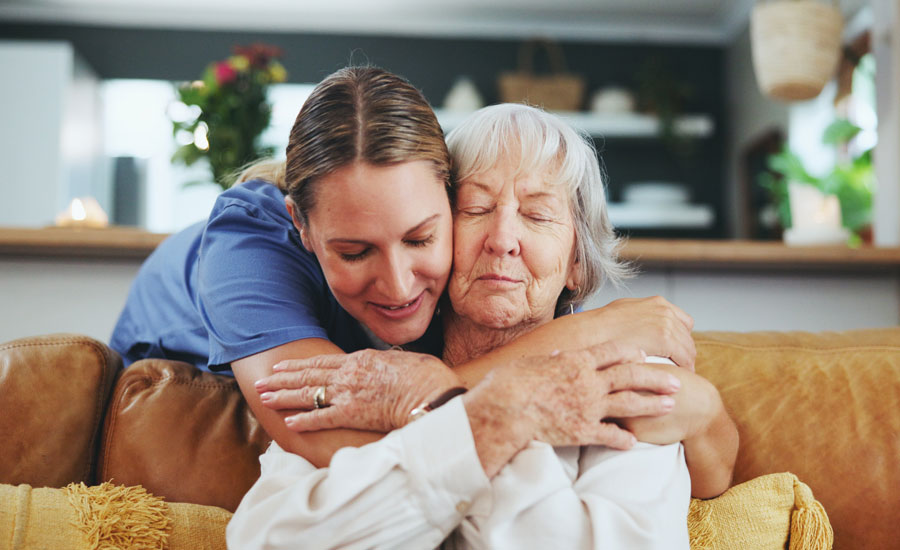The Truth About Mental Health Support in Care Homes

Mental health is vital to overall well-being, especially later in life. If you’re wondering, ‘what mental health resources are available in care homes,’ you’re not alone – it’s one of the most important questions to ask.
Did you know that up to 40% of older people in care homes suffer from depression?
Luckily, these days, modern care homes focus on residents’ emotional needs – as well as physical.
This article will discuss mental health support in care homes and how these resources can make a real difference.
What Mental Health Resources are Available in Care Homes?
Care homes provide a range of mental health resources, such as:
- On-site professionals – Access to counsellors, therapists or psychologists for emotional support.
- Trained staff – Caregivers skilled in mental health awareness and recognising conditions like anxiety or dementia.
- Therapeutic activities – Art therapy, pet therapy, music therapy, puzzles and other cognitive stimulation.
- Group programs – Social activities and exercise classes to reduce loneliness and foster connection.
- Personalised care plans – Custom mental health strategies to meet individual needs.
- External support – Partnerships with community mental health services and telehealth options.
- Crisis support – Resources for immediate care during mental health emergencies.
The Need for Mental Health Support in Care Homes
Moving to a care home can feel unsettling and distressing. This is why, when it comes to transitioning into a care home, the need for mental health support is quite significant, as residents usually face emotional challenges that come with ageing and major life transitions.
Here’s why this support is so essential:
Common Mental Health Challenges in Care Homes
Loneliness and Isolation
Moving into a care home can feel overwhelming, especially if it means leaving familiar surroundings and social networks behind. This transition often leads to feelings of isolation.
Grief and Loss
Many residents have experienced the loss of loved ones or a decline in independence, which can profoundly affect their emotional state.
Cognitive Decline
Conditions like dementia or memory loss bring both emotional and psychological strain.
Chronic Illness
Physical health issues often intersect with mental health, leading to unsettling bouts of anxiety or depression.
The Impact on Quality of Life
While poor mental health affects mood, it can also lead to a decline in physical health, reduced social engagement and lower participation in daily activities. But, when mental health is supported, residents experience:
- Greater emotional stability
- Improved relationships with staff, family and fellow residents
- A higher sense of purpose and enjoyment in daily life
Why Mental Health Resources Matter in Care Homes
The need for mental health care is about ensuring residents are heard, valued and supported, helping them to cope and thrive.
This is the first step to appreciating the role that mental health resources play in transforming care homes into nurturing, supportive environments.
Benefits of Mental Health Resources in Care Homes
Investing in mental health resources within care homes transforms residents’ quality of life. Here’s how they make a real difference:
Improved Emotional Well-Being
Access to mental health support helps residents manage feelings of restlessness, loneliness, anxiety or grief. With the right tools, they can regain a sense of calm and stability, helping them feel happier and more fulfilled in daily life.
Better Social Connection
Joining in on group activities and receiving therapy sessions and staff support encourages residents to engage with others. Stronger social bonds lessen feelings of isolation, creating a vibrant, community-driven atmosphere where everyone feels included.
Early Intervention for Mental Health Issues
Trained staff and regular mental health assessments ensure that signs of depression, anxiety or dementia are spotted earlier rather than later. Being proactive prevents conditions from worsening and allows for timely, effective care.
Better Physical Health
Did you know that mental and physical health are closely linked? Well, when you address emotional well-being, it often leads to improvements in sleep, appetite and energy levels, which, in turn, boosts physical health.
Greater Independence and Confidence
When mentally healthy, residents feel more in control of their lives. They’re more likely to participate in activities, make decisions and maintain a sense of independence.
A Calmer, More Positive Environment
Residents who feel mentally and emotionally supported are more content, which creates a ripple effect throughout the care home. Staff experience fewer challenges and the overall atmosphere becomes one of mutual respect and care.
Choosing a Care Home That Prioritises Well-Being
Mental health support and resources in a care home setting foster stronger social bonds, improve emotional stability and empower residents to maintain a sense of independence and purpose.
So, if you’re currently exploring care homes for your loved one, consider the mental health resources they offer. Prioritising emotional well-being provides a setting where residents feel valued, supported and thoroughly at home.
Ready to explore...
